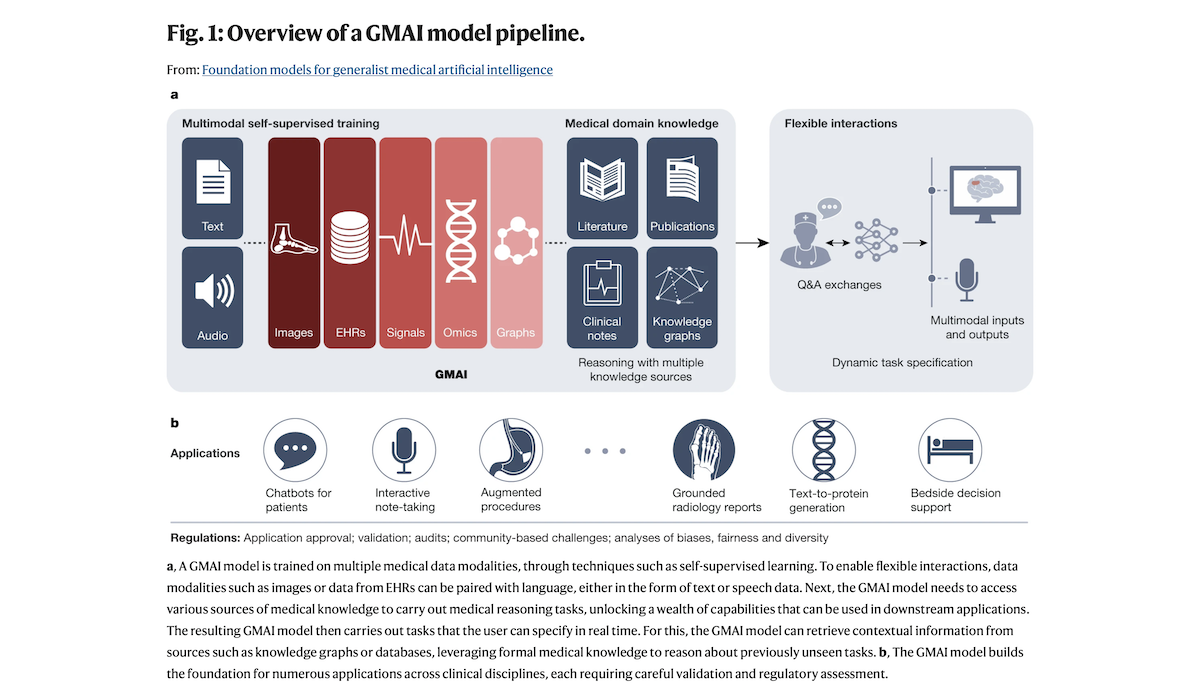NATURE. Perspective. Foundation models for generalist medical artificial intelligence. 12 April 2023.
Michael Moor, Oishi Banerjee, Zahra Shakeri Hossein Abad, Harlan M. Krumholz, Jure Leskovec, Eric J. Topol & Pranav Rajpurkar
Abstract
The exceptionally rapid development of highly flexible, reusable artificial intelligence (AI) models is likely to usher in newfound capabilities in medicine. We propose a new paradigm for medical AI, which we refer to as generalist medical AI (GMAI). GMAI models will be capable of carrying out a diverse set of tasks using very little or no task-specific labelled data. Built through self-supervision on large, diverse datasets, GMAI will flexibly interpret different combinations of medical modalities, including data from imaging, electronic health records, laboratory results, genomics, graphs or medical text. Models will in turn produce expressive outputs such as free-text explanations, spoken recommendations or image annotations that demonstrate advanced medical reasoning abilities. Here we identify a set of high-impact potential applications for GMAI and lay out specific technical capabilities and training datasets necessary to enable them. We expect that GMAI-enabled applications will challenge current strategies for regulating and validating AI devices for medicine and will shift practices associated with the collection of large medical datasets.

Conclusion
Foundation models have the potential to transform healthcare. The class of advanced foundation models that we have described, GMAI, will interchangeably parse multiple data modalities, learn new tasks on the fly and leverage domain knowledge, offering opportunities across a nearly unlimited range of medical tasks. GMAI’s flexibility allows models to stay relevant in new settings and keep pace with emerging diseases and technologies without needing to be constantly retrained from scratch. GMAI-based applications will be deployed both in traditional clinical settings and on remote devices such as smartphones, and we predict that they will be useful to diverse audiences, enabling both clinician-facing and patient-facing applications.
Despite their promise, GMAI models present unique challenges. Their extreme versatility makes them difficult to comprehensively validate, and their size can bring increased computational costs. There will be particular difficulties associated with data collection and access, as GMAI’s training datasets must be not only large but also diverse, with adequate privacy protections. We implore the AI community and clinical stakeholders to carefully consider these challenges early on, to ensure that GMAI consistently delivers clinical value. Ultimately, GMAI promises unprecedented possibilities for healthcare, supporting clinicians amid a range of essential tasks, overcoming communication barriers, making high-quality care more widely accessible, and reducing the administrative burden on clinicians to allow them to spend more time with patients.
Learn more:


